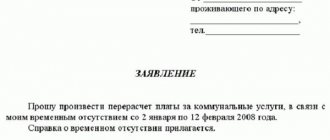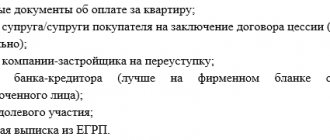Who can seize an apartment?
Only a bailiff has the right to seize and sell real estate on the basis of a decision made by a court or a writ of execution made by a notary. Threats from banks or collectors that they will come, seize the apartment and throw all the residents out onto the street are nothing more than a way of intimidating a person to pay off the debt as quickly as possible. You need to know that first the bailiff seizes the debtor’s funds, and only if this amount is not enough, he seizes other property that the person owns. The exception is sheets of foreclosure on mortgaged property. According to them, the bailiff can immediately place a lock on housing provided by a person as collateral to receive money on a loan.
In what cases can a bailiff seize real estate?
First, the debtor receives from the bailiff a decree banning the apartment or from a Federal Reserve employee a notice of seizure of the residential premises. A bailiff can impose a ban on an apartment that is the only one suitable for a person and his family to live in only with the goal of preventing the debtor from getting rid of the apartment (sell, donate, bequeath, etc.), without subsequent sale. If a person owns several residential premises, then the bailiff has the right to seize the property and subsequently sell it. However, two mandatory conditions must be met:
-The debtor owns two or more residential premises.
-The amount of debt is not much less than the cost of the apartment.
Is it possible to lose your only home for debt in 2020?
No threatening calls from a bank or from collectors should mislead a citizen. No one, except the bailiffs, can come and evict the tenants from the apartment, appealing the existing debt.
When does a bailiff have the right to seize real estate?
- if the debtor complies with the rules of living in the apartment;
- in case of detection of intentional evasion from payment of the accumulated debt;
- if it is necessary to suppress real estate transactions when there is a need for it.
They do not take away things necessary to meet minimal household needs. That is, the bailiffs will not take away the bed, table, chairs, refrigerator, stove. But they can take away a washing machine, a sofa on which no one sleeps, armchairs, a microwave oven and a carpet.
The task of the bailiff is to transfer the amount under the writ of execution to the claimant as soon as possible. And the bailiff has the right to take expensive and high-quality things from the debtor so that they can actually be sold and receive money.
What property bailiffs cannot seize
The bailiff has the right to send inquiries to banks about the debtor's accounts. If such accounts are found, banks are obliged to immediately withdraw money from them in the required amount and send it to the bailiffs. If there are not enough funds in the account, the bank will withdraw from it all the money that will arrive in the future, up to the full repayment of the debt.
- If the apartment or dacha is the only living space of the debtor and his family members. The second condition is the absence of other types of property other than a single apartment.
- If there are minor children living in the debtor's family in a single apartment. In this case, the arrest is not made due to the infringement of the rights of children in relation to living space. Accordingly, withdrawal is impossible even if the debts equal or exceed the cost of the apartment.
- Land plot. In this case, we are talking about personal land or a plot under a house. According to the law, the alienation of real estate occurs along with the basis - land, which is not included in the list of property subject to seizure.
- Household things. Here household items and personal belongings of the debtor are distinguished. They also cannot be seized for debts.
- Items of professional activity. A striking example is a laptop, if the debtor is engaged in writing or participates in brokerage trading. But if the total amount of property exceeds 100 minimum wages, then it falls out of the general list and is subject to seizure.
- Animals and plants. This group refers to domestic animals (KRG, birds) and plant seeds necessary to ensure the life of the debtor and his family members.
- Finance. Finance means an amount that is at least the minimum subsistence level for the comfortable living of the debtor and his family.
- Other property. This type of property cannot be the object of collection for debts, no matter how impressive they may be. In our case, the interest is in the debtor’s only home, the terms of collection of which were supplemented by a number of legislative provisions.
- Innovations in the legislative and judicial framework
- In 2020, the Supreme Court of the Russian Federation adopted a resolution according to which bailiffs received the authority to seize the only home for debts. In other words, the resolution amended Art. 466 Code of Civil Procedure of the Russian Federation. However, at the same time, an official commentary on this decision appeared.
We recommend reading: Waste disposal for Kosgu 2020
Is it possible to actually evict an apartment due to debts?
And if previously the procedure concerned only movable property and cash income, then in 2020 the position of the Supreme Court of the Russian Federation on the legality of the arrest of the debtor’s only home was approved. But despite the seriousness of the approach, the conditions of arrest have their own characteristics. Below we will talk about whether it is possible to seize real estate for debts?
Therefore, the most important advice is best addressed to home buyers: before any purchase of real estate, you need to carefully read all the documents. And without a professional notary, this is not always easy to do.
In what cases is an apartment taken away for debts?
Debt under a mortgage agreement Most often, an apartment is taken away for non-payment of the mortgage, because... only then can the apartment, its only real estate suitable for living, be seized in favor of the bank.
The legislator mitigates the responsibility for a person who finds himself on the verge of eviction. Thus, you cannot foreclose on a mortgage if the amount of the debt is less than 5% of the price of the mortgaged apartment and the period of overdue is less than 3 months.
For example: A citizen lost his job and did not repay the loan for 2 months. A debt totaling 30 thousand rubles was generated. The bank wrote an application to the court to foreclose on the mortgaged apartment, the cost of the latter amounted to 1.5 million rubles. The court refused the creditor because the amount of debt is much less than the cost of the apartment on the mortgage.
If the borrower’s financial situation has deteriorated significantly (loss of job, salary reduction, illness, etc.), then one should not shy away from negotiations with the bank and bring the matter to the seizure of the apartment; it is better to look for an alternative path together. One way to solve the problem is to contact a credit institution with a statement:
-on debt restructuring (this increases the repayment period, but reduces the amount of monthly contributions);
-on the provision of “credit holidays” (the bank freezes payments, including interest, for a certain period);
- about changing the payment schedule (instead of monthly payments, make quarterly payments).
After sending the application, you must obtain written approval from the credit institution to change the terms of the agreement, and only then start paying according to the changed data. Another possible way out of a difficult situation is to obtain a loan from a bank under more favorable conditions secured by the same property (subsequent mortgage). The most important thing is that the initial agreement should not contain a ban on such a transaction.
For example: A citizen took out a loan by mortgaging an apartment. Due to illness, he was unable to make payments for some time. A debt has arisen. Because the loan agreement did not prohibit subsequent mortgages; he, using the same apartment as collateral, received a loan from another bank on more favorable terms. From this money he paid off his debt to the first bank.
Buying and selling an apartment with a debt
In this case, everything depends on whether the property is seized by bailiffs or not seized. In the second case, it is possible to sell the apartment, the debt will remain with the owner, and it cannot be transferred to the new owners in any way. If property is seized, it is impossible to sell it until the seizure is lifted.
FAQ
- receive a deposit from the buyer and use it to pay off debts;
- or first try to find funds, perhaps take out a loan to pay off debts, and repay the loan taken after selling the home.
Previously, it was impossible to take away an apartment to pay off a debt. Today, the solution to the problem may be completely legal. To do this, the bailiff must have an idea of which apartments and houses are subject to inventory, and which still cannot be seized. Currently, simple rules apply:
- the object is the only suitable housing for a specific person and his family;
- parts of the property (shares, rooms) that meet the specified criteria;
- plot on which the only dwelling is located.
The only housing - signs and characteristics of the object
Any piece of real estate, whether residential or non-residential, can be arrested and subsequently sold to pay off the debt. The function of the collector is performed by the FSSP. Often, housing is not sold at auction, but is seized to ensure the safety of property and protection from possible fraudulent schemes on the part of the debtor.
The government is constantly talking about the need to make changes to the legislation, in particular regarding the amount of debt limiting travel, as well as the period for transferring information from the FSSP to the migration service.
We recommend reading: Explanations on Sout 2020
Debt on alimony payments
If the debtor evades repayment of the debt, hides his property, place of work, and at the same time, the amount of debt is commensurate with the cost of the residential premises, the bailiff for alimony debts has the right to seize and sell the apartment owned by the negligent parent.
For example: A citizen did not pay alimony for a long time, the total amount of debt was 800 thousand rubles. The debtor had no other property except the apartment where he lived. When re-sending requests to reg. authorities, from the response received from the Federal Reserve System, the bailiff learned that the debtor had inherited another property. The official issues a decree to seize the apartment so that the debtor cannot sell it, and sends it to the Federal Reserve System. Because He now owns two residential premises, and the cost of one of the apartments is about 900 thousand rubles, the bailiff draws up an act of arrest for its subsequent sale.
Can they take away an apartment for utility debts?
If the apartment is owned, then the bailiffs can draw up an arrest report and sell it for non-payment of utility bills only if the person owns several residential premises and if the amount of the debt is equal to or slightly less than the cost of the apartment. That is, sell an apartment worth 1.5 million rubles. for a debt of 20 thousand rubles. no one can.
When the apartment is not owned by the debtor, and the latter lives in it under a rental agreement, he can be evicted through the court if the resident has not paid for the housing for 6 months (for short-term rentals - within 2 months). If payments are made at least partially, it will be almost impossible to evict the debtor.
From what amount of housing and communal services debt is an apartment seized?
Russians who have debt obligations to the state, banking or credit organizations often ask this question. It still remains open. The new bill provides for the seizure of real estate - even if this is the citizen’s only home. The law has not yet been approved.
- If the debtor still owns the property or other housing. It could even be a room or share in a communal apartment.
- The amount that the citizen did not pay is slightly less than the total cost of the apartment.
- There is a decree from the courts or a notary.
This is important to know: What is the total project area of the apartment
Seizure of a share in the right of ownership of housing
If a person has several residential premises in common shared ownership, the bailiff can seize the share in one of the apartments. To do this, the bailiff applies to the court to seize the debt to pay off the debt. The judge allocates the share that belongs to the person “in kind”, i.e. indicates in the decision which specific part of the apartment belongs to the debtor, its area and purpose. Having received the relevant document, the bailiff draws up a deed and a decree of seizure for the subsequent sale of the property.
If a minor lives in the apartment
It is possible to sell real estate if a minor is registered there only with the written consent of the guardianship authority.
When deciding on the issue of foreclosure on an apartment in court, a representative of the guardianship authority is invited, and, taking into account the circumstances of the case and his opinion, a decision is made. According to Article 292 of the Civil Code of the Russian Federation, as soon as an apartment becomes the property of another person, family members of the previous owner lose all rights to this housing.
For example: the court decided to foreclose on an apartment in which a mother and her child lived. The guardianship gave permission to sell this apartment, because... the child was not its owner and they had another apartment, the owner of which was a minor. Next, the bailiff arrested her. As a result of the auction, a new citizen became the owner of the apartment. After receiving a certificate of state registration of ownership from the Federal Reserve System, the new owner has the right to evict the mother and child from the occupied apartment.
The bailiff can seize housing not only for non-payment of alimony and utility bills, but also for compensation for harm to health, moral damage, taxes, etc., provided, as already mentioned, that the debtor owns several apartments and the amount of the debt is proportional to the price of the premises. Therefore, it is better not to hide from creditors and bailiffs, but to try to resolve issues on mutually beneficial terms
Based on materials from “Legal Consultations”






